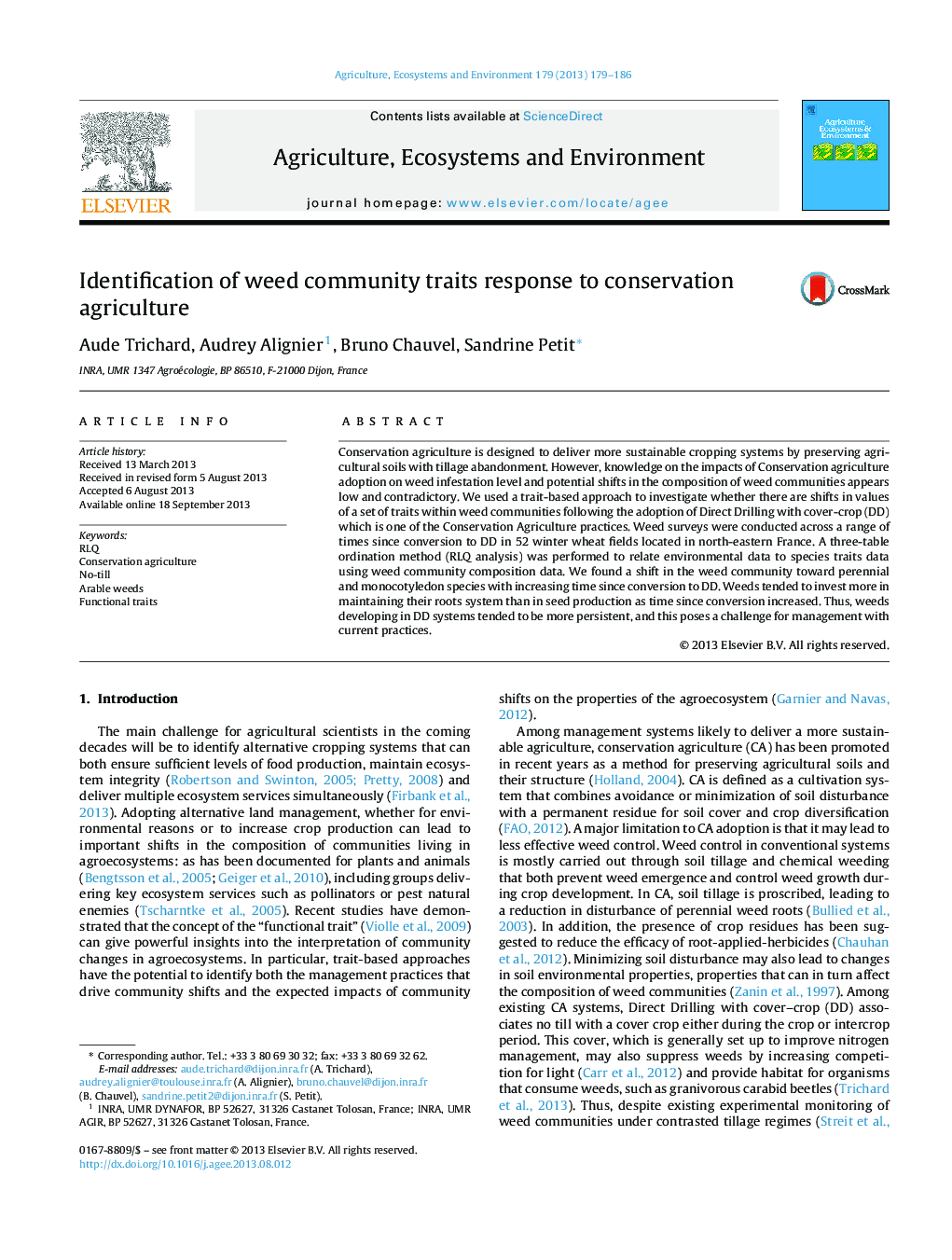| Article ID | Journal | Published Year | Pages | File Type |
|---|---|---|---|---|
| 8488090 | Agriculture, Ecosystems & Environment | 2013 | 8 Pages |
Abstract
Conservation agriculture is designed to deliver more sustainable cropping systems by preserving agricultural soils with tillage abandonment. However, knowledge on the impacts of Conservation agriculture adoption on weed infestation level and potential shifts in the composition of weed communities appears low and contradictory. We used a trait-based approach to investigate whether there are shifts in values of a set of traits within weed communities following the adoption of Direct Drilling with cover-crop (DD) which is one of the Conservation Agriculture practices. Weed surveys were conducted across a range of times since conversion to DD in 52 winter wheat fields located in north-eastern France. A three-table ordination method (RLQ analysis) was performed to relate environmental data to species traits data using weed community composition data. We found a shift in the weed community toward perennial and monocotyledon species with increasing time since conversion to DD. Weeds tended to invest more in maintaining their roots system than in seed production as time since conversion increased. Thus, weeds developing in DD systems tended to be more persistent, and this poses a challenge for management with current practices.
Related Topics
Life Sciences
Agricultural and Biological Sciences
Agronomy and Crop Science
Authors
Aude Trichard, Audrey Alignier, Bruno Chauvel, Sandrine Petit,
